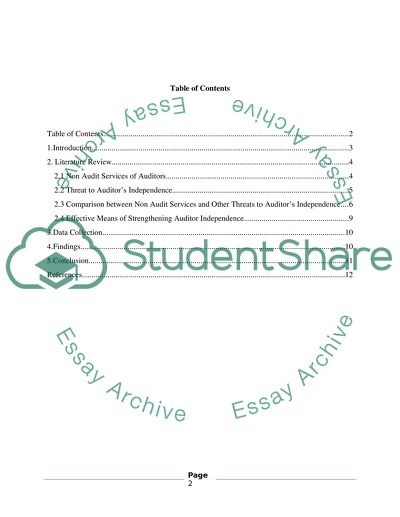Cite this document
(“Provision of Non Audit Services by the Auditor to the Audit Client Is Essay”, n.d.)
Provision of Non Audit Services by the Auditor to the Audit Client Is Essay. Retrieved from https://studentshare.org/finance-accounting/1443878-provision-of-non-audit-services-by-the-auditor-to
Provision of Non Audit Services by the Auditor to the Audit Client Is Essay. Retrieved from https://studentshare.org/finance-accounting/1443878-provision-of-non-audit-services-by-the-auditor-to
(Provision of Non Audit Services by the Auditor to the Audit Client Is Essay)
Provision of Non Audit Services by the Auditor to the Audit Client Is Essay. https://studentshare.org/finance-accounting/1443878-provision-of-non-audit-services-by-the-auditor-to.
Provision of Non Audit Services by the Auditor to the Audit Client Is Essay. https://studentshare.org/finance-accounting/1443878-provision-of-non-audit-services-by-the-auditor-to.
“Provision of Non Audit Services by the Auditor to the Audit Client Is Essay”, n.d. https://studentshare.org/finance-accounting/1443878-provision-of-non-audit-services-by-the-auditor-to.


